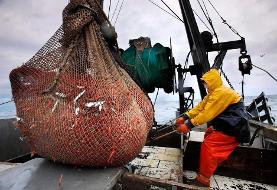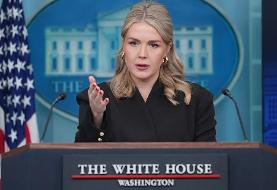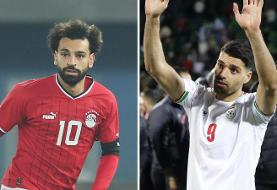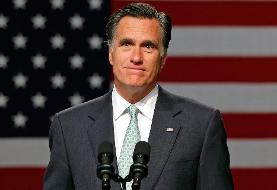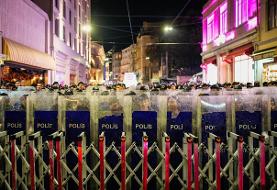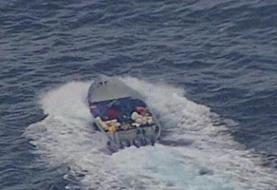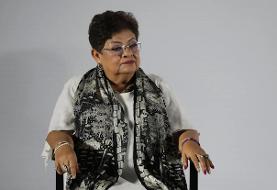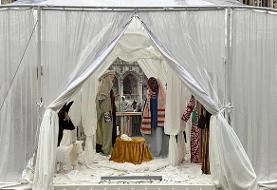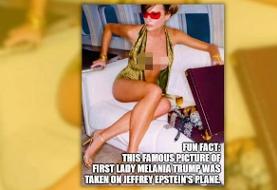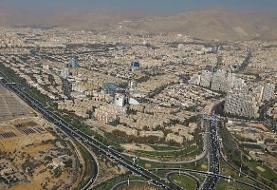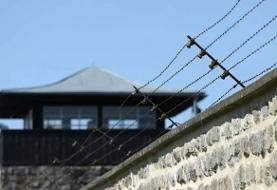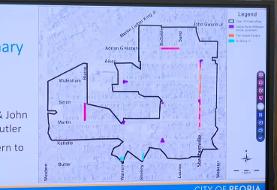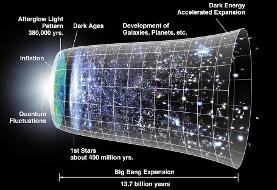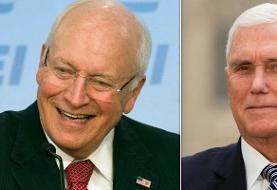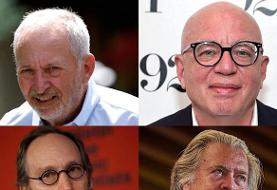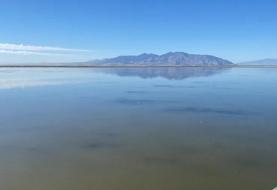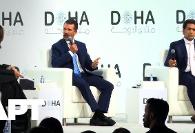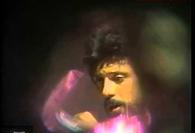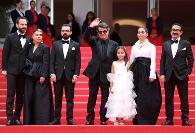Mohsen Makhmalbaf
News and Articles
 Reformist website reveals secret life of Iranian leader: ...
Reformist website reveals secret life of Iranian leader: ...
 Censored Iranian Film to Be Screened in London for First ...
Censored Iranian Film to Be Screened in London for First ...
 Review: 'The Gardener' digs into the Bahai faith
Review: 'The Gardener' digs into the Bahai faith
 Mohsen Makhmalbaf's "THE GARDENER" in Los Angeles
Mohsen Makhmalbaf's "THE GARDENER" in Los Angeles
 Iran director defends Israel visit after outcry
Iran director defends Israel visit after outcry
Mohsen Makhmalbaf (born May 29, 1957, Tehran) is an influential and controversial Iranian film director, writer, editor, and producer. He is currently the president of the Asian Film Academy. His films have been widely presented in international film festivals in the past 10 years. The multi-award-winning director, belongs to the new wave movement of Iranian cinema.

Biography
Makhmalbaf began to support his single mother at the age of 8 and by the time he turned 17, he had worked as bellboy, plains worker and anything else he could find in the 13 jobs he went through.
A youngster in the southern districts of Tehran, Mohsen formed an under-ground Islamic militia group since he was 15 and by the time he was 17, he was shot and arrested while attempting to disarm a policeman. Expecting to remain in prison for much longer, he was released from prison shortly after the revolution in 1979. The 4½-year incarceration helped him to educate himself in various fields and reflect on life and Iranian society. This intellectual renaissance led him to distance himself from politics and in favor of literature and the arts, especially cinema. He came to believe that Iranian society suffers more from cultural poverty than anything else.
Mohsen Makhmalbaf became a writer and filmmaker in post-revolutionary Iran. His literary activities included research into the arts, novels, short stories and screenplays, some of them translated to English, French, Italian, Arabic, Urdu, Kurdish, Turkish, Korean, Portuguese, Greek, Russian, and Japanese.
He wrote and directed 18 feature films and 6 short films, as well as writing screenplays and editing films for various other Iranian filmmakers. His films screened more than 100 times at international film festivals throughout the world, and earned many awards.
In 1996 he temporarily abandoned his filmmaking career in order to teach. He formed the Makhmalbaf Film House in which he taught film to a select group of pupils including his own three children. He is currently conducting research for his upcoming film after several years of cinematic silence.
His research for the movie Kandahar included traveling secretly to Afghanistan during the Taliban rule, where he witnessed the chaotic situation of the country, becoming so disturbed that, after the completion of the film, he took charge of executing 80 projects in a 2 year period on education and hygiene within Afghanistan as well as improving the living conditions of Afghan refugees in Iran.
Many of Mohsen Makhmalbaf’s works have been censored and neglected in Iran.
Career
Mohsen Makhmalbaf is a major figure in Iranian cinema. Time magazine selected Makhmalbaf's 2001 film, Kandahar, as one of top 100 films of all time. His films have explored the relationship between the individual and a larger social and political environment. As a result, his work serves as an extended commentary on the historical progression of the Iranian state and its people. And if Makhmalbaf's films are at times polemical, he nonetheless brings a poet's sensibility to urgent and eternal issues—faith, love, regret, suffering, injustice—of the human condition.
In 1981 he wrote the screenplay for Towjeeh directed by Manuchehr Haghaniparast. In 1982 he wrote the screenplay for Marg Deegari directed by Mohamad Reza Honarmand. He made his first film Tobeh Nosuh in 1983.
Boycott is a 1985 film by Mohsen Makhmalbaf, set in pre-revolutionary Iran. The movie tells the story of a young man named Valeh (Majid Majidi) who is sentenced to death for his communist tendencies. It is widely believed that the movie is based on Makhmalbaf’s own experiences.
Mohsen Makhmalbaf creates a spare and deeply affecting portrait of human despair, exploitation, and resilience in The Cyclist (1987). The movie is about Nasim, a poor Afghan refugee in Iran, who is in desperate need of money for his ailing wife. Finally Nasim agrees to ride a bicycle in a small circle for one week straight in return for the money he needs to pay his wife’s medical bills.
Time of Love (1991) is Mohsen Makhmalbaf’s ninth feature film and the first film of what he calls his "third period". It is a romantic trilogy that offers three variations of the same story.
Makhmalbaf directed Gabbeh in 1996. The film follows the nomadic Ghashghai people, whose bright, bold carpets tell stories. The main yarn features a young woman who loves a mysterious stranger, but is forbidden to marry him. Makhmalbaf attempts to follow the carpet idea by making his film dreamily romantic and non-realistic. Events seem to leap around in time and space, much like a dream.
He has also published 27 books, many of which have already been translated in more than ten languages.
Kandahar (2001) is a fictional odyssey inspired by a true story. It is Makhmalbaf's look at Afghanistan before Sept. 11, as the Taliban's laws strip women of civil rights and hope, and a Western-cultured Afghan woman returns to prevent her sister's suicide during the last eclipse of the 20th century.
He has also taught cinema for years in his film school. His family members who studied in his school have been very successful in their career. Marziyeh Meshkini, his wife, gained thirteen international prizes for her film, The Day I Became a Woman, and his daughter Samira received the jury's prize at the Cannes film festival in 2000. His younger daughter Hana directed her first film Joy of Madness in 2003. In 2000 Boston University awarded Makhmalbaf its Special Prize.
Makhmalbaf also founded a non-governmental organization for enabling Afghan children to go to school in Iran; by means of changes in Iranian laws due to his campaigns, he succeeded in sending tens of thousands of Afghan children to schools in Iran. He also lived for a while with his family in Kabul, where he helped build schools and hospitals. He assisted an Afghan director to produce a movie and daughter Samira directed a movie in Afghanistan, entitled At Five in the Afternoon.
He is believed to currently reside in Europe. During the 2009 Presidential election in Iran, Makhmalbaf was a supporter of Mir Hossein Mousavi the "Green" reform candidate who protested the election fraud. Makhmalbaf assumed an active role and appeared before European media and the European Parliament in Brussels to represent the "Green" protest to fraud and violence in Iranian Presidential Election 2009.
Cinematic Style
Makhmalbaf focuses on several genres, from realist films to fantasy and surrealism, from minimalism to large frescos of everyday life, with a predilection (common to Iranian directors) for the themes of childhood and cinema.
Influence of Makhmalbaf on World Cinema
Persian cinema in Afghanistan is slowly on the rise, after a long period of silence. Before the September 11 attacks, Makhmalbaf attracted global attention to Afghanistan with his celebrated movie, Kandahar. Kandahar was an attempt to tell the world about a forgotten country. Later on, Yassamin Maleknasr, Abolfazl Jalili, Samira Makhmalbaf and Siddiq Barmak made significant contributions to Persian cinema in Afghanistan. Siddiq Barmak is also director of the Afghan Children Education Movement (ACEM), an association that promotes literacy, culture and the arts, founded by Makhmalbaf. The school trains actors and directors for the emerging Afghan cinema.
In Tajikistan, Makhmalbaf is playing the same role as he played in the reconstruction of the cinema of post-Taliban Afghanistan. 1st Didar Film Festival, the first Film festival in Tajikistan, was held in 2004.
Filmography (Written and Directed by Makhmalbaf)
- Boycott (1985)
- The Street Vendor (1986)
- The Bicyclist (1987)
- The Marriage of the Blessed (1988)
- Time of Love (1990)
- The Nights of Zayande-rood (1990)
- Naser-ed-din Shah (1991)
- Actor (1993)
- Hello Cinema (1994)
- Gabbeh* (1995)
- Bread and Flower-pot (retitled Moment of Innocence for anglophone audiences) (1995)
- The Silence (1997)
- Test of Democracy (1999), with Farrokh-yar
- Kandahar (2001), brought him the Federico Fellini Prize From Unesco in Paris in 2001
- Alefbay-e afghan (2002) (The Afghan Alphabet, documentary)
- Monday Market (2004)
- Colder Than Fire (2005)
- Sex & Philosophy (2005)
- Chair (2005)
- Poet of wastes (2005)
- Scream of the ants (2006)
Film Appearances (Playing Himself)
- The Marriage of the Blessed (1988), directed by himself
- Close-up (1988), directed by Abbas Kiarostami
- Hello Cinema (1994), directed by himself
- Bread and Flower-pot (1995), directed by himself
- The Test of Democracy (1999), directed by himself and Farrokh-yar

Member of Jury
- Venice film festival (2006)
Lifelong Achievement Awards
- Scythian Deer, from the President of Ukraine (2007)
- President of Asian Film Academy (2007)
- Parajanov Award for outstanding Artistic contribution to the world cinema (2006)
- Federico Fellini Gold Medal, UNESCO (2001)
Books on Makhmalbaf
- Hamid Dabashi, Close Up: Iranian Cinema, Past, Present and Future. (Chapter on Makhmalbaf). Verso, 2001.
- Hamid Dabashi, Like Light from the Heart of Darkness. Sakuhinsha, Japan, 2004.
- Hamid Dabashi, Masters & Masterpieces of Iranian Cinema: (Chapter XI: Mohsen Makhmalbaf: A Moment of Innocence. pp. 325-368). Mage Publishers, 2007. ISBN 093421185X.
- Hamid Dabashi, Makhmalbaf at Large: The Making of a Rebel Filmmaker. I. B. Tauris, 2007.
- Introducing of Mohsen Makhmalbaf and His Works.
- The films of Makhmalbaf.
- Mohsen Makhmalbaf.
- Makhmalbaf's Broken Mirrors.
Films About Makhmalbaf
- The Closed Eyes of Mohsen
- Close up, by Abbas Kiarostami, 1990
- Friendly Persuasion : Iranian Cinema After the Revolution
- Cinema Is Nation's Language
- The Dumb Man's Dream
- Who's Who?








